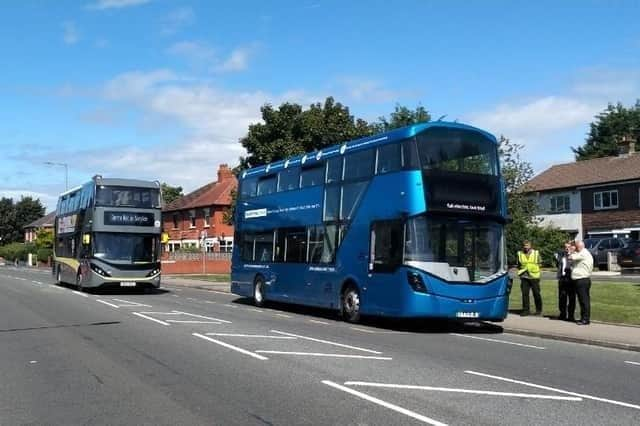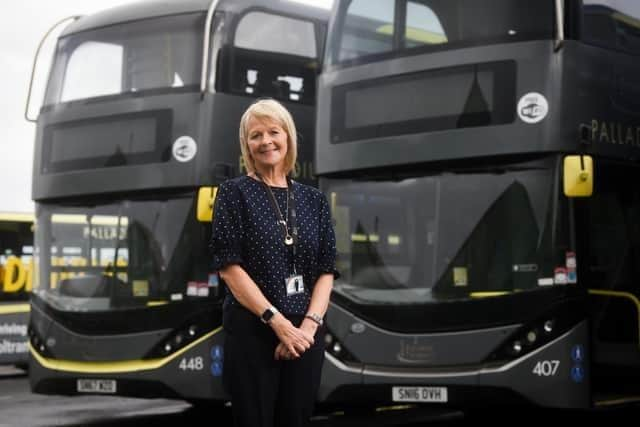£8m cash injection to power new electric bus fleet in Blackpool
and live on Freeview channel 276
Blackpool Council has agreed to lend £8m to Blackpool Transport, which it owns, from its business loans fund.
The money will be used to upgrade the Rigby Road depot by fitting the infrastructure required for electric buses including charging points.


Advertisement
Hide AdAdvertisement
Hide AdBlackpool Transport is due to replace it current fleet with 115 electric buses over the next three to five years.
It received £20m towards the cost of the project in March this year after a successful bid to the Department for Transport’s Zero Emission Bus Regional Area (ZEBRA) fund.
Blackpool Transport managing director Jane Cole said “The approval of the loan is an integral step in our endeavours to become the most sustainable, reliable and environmentally friendly mode of travel across the Fylde Coast.
"We are very appreciative for the support of Blackpool Council, helping us make the first steps to modernise our Rigby Road depot and have it ready for the first electric buses to arrive in Blackpool.”


Advertisement
Hide AdAdvertisement
Hide AdThe council's Shareholder Committee approved the £8m loan towards the scheme at its meeting in December.
It is proposed to introduce 105 new vehicles and charging points over two initial procurement tranches and to decide upon the further 10 vehicles once operating conditions become clearer.
A report to the committee sets out a raft of reasons for converting the fleet to electrical use including increasing diesel costs and the expected phasing out of diesel engines by bus manufacturers in the next five years.
The report adds there is potential for an increase in demand for public transport due to various regeneration schemes in the town centre including the relocation of civil servants to new offices being built in King Street.
Advertisement
Hide AdAdvertisement
Hide AdThe change will also support the council's climate emergency policy to achieve net zero carbon emissions by 2030.
It adds: "The decision to approve the application for a loan was based on the recommendation of the council’s loans panel and the application met the criteria outlined in the council’s business loans fund. "
Each new bus will feature a customer-focused design and will be “tailpipe emissions-free”, helping to improve air quality across the Fylde.
